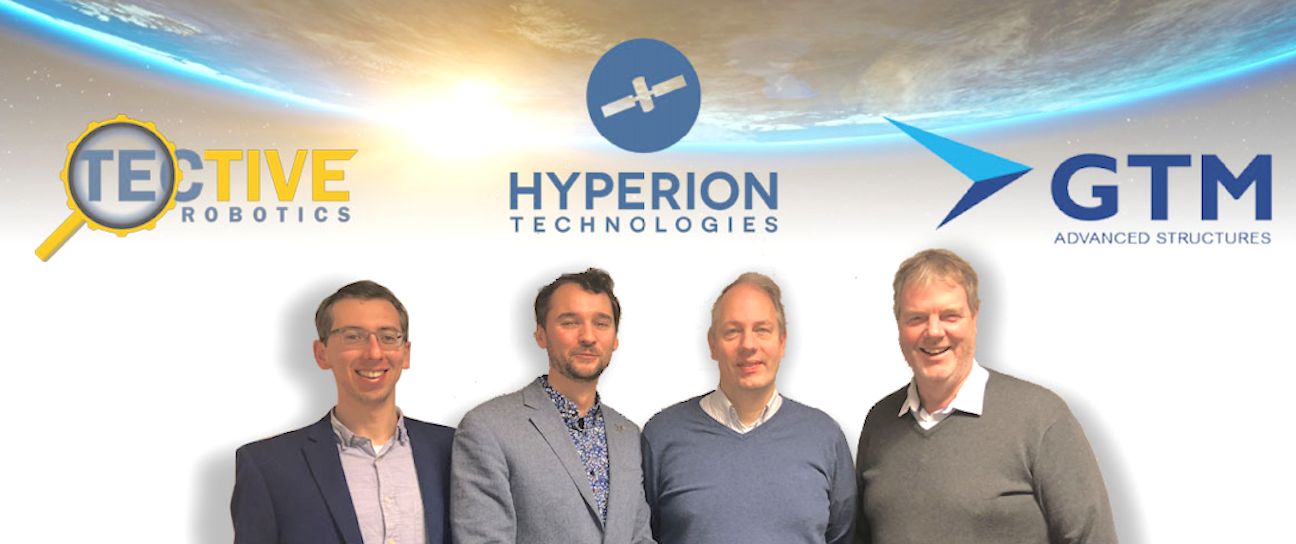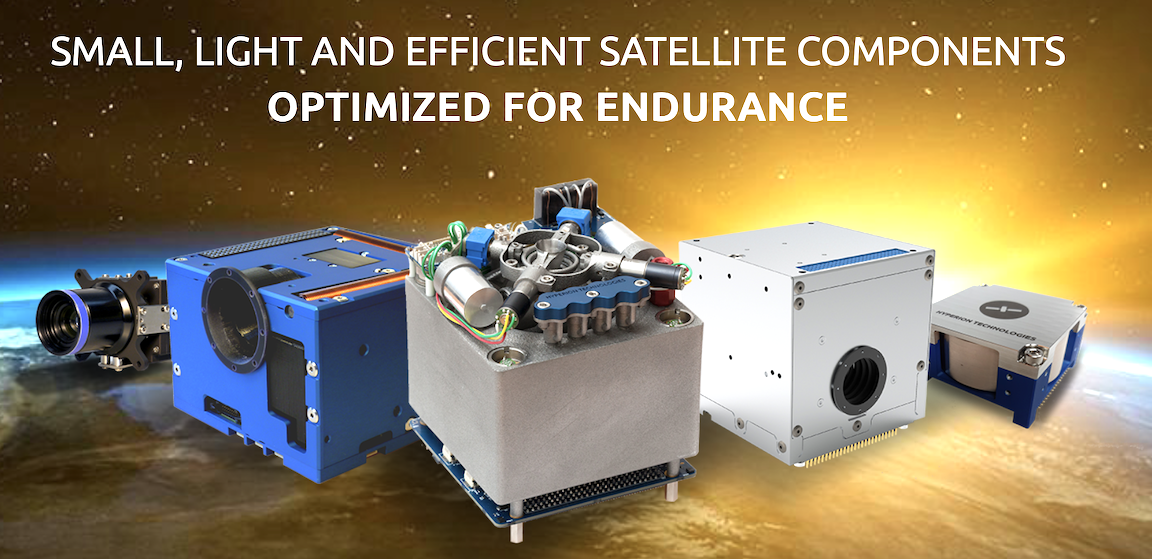
From left to right: Mattijs Otten & Jeffrey Miog, Founding team of Tective, Bert Monna, CEO of Hyperion Technologies and Jochem Frudiger, Managing Director of GTM – Copyright: Hyperion Technologies
Three Dutch companies are celebrating their first place solution regarding a highly modular and scalable power system for small satellites.
The consortium, consisting of Hyperion Technologies, GTM Advanced Structures and Tective BV, scored first place among 31 winning subsidy applications. Starting in February 2020, the consortium will take on an 18-month journey to develop a highly modular and scalable power system for small satellites. By winning the province’s MIT Research & Development subsidy worth over €130K, the CubeSat Advanced Power System (CAPS) will soon be reality.
Small satellites, like CubeSats and Nanosats, have come a long way to earn their respect within the scientific and commercial community. Today, many miniaturized high-performance systems and payloads exist to deliver reliable data products, for example through making use of constellations and distributed risks. Integrated power systems for these kinds of small satellites are already available.
However, the NewSpace market is getting mature: With launch cost steadily dropping, “small” satellites can afford to grow in size, allowing for more complex payloads — not least of all because the global market is showing a growing user base for more, new or innovative space-based data products. Standardized and commercial off-the-shelf components for these sizes of satellites are, however, still a rarity.

CAPS aims to target this growing niche of “larger” small satellites to facilitate their increased power demands. The result will consist of a high-power, end-to-end power solution for demanding payloads. A unified system architecture will allow for modular implementations of solar panels, power storage and power distribution in a variety of larger CubeSat sizes. The solution will be made tailorable for individual client needs at an affordable price.
Hyperion Technologies has been steadily expanding its product portfolio. With the development of CAPS, the company expects to be able to offer an even broader range of products for small satellites within the next two years. This will allow the company to act as a one-stop-shop, being able to supply everything needed to facilitate satellite systems for demanding CubeSat payloads.
CEO Bert Monna is clear in his vision of CAPS as he said they aim to offer clients a plug-and-play experience. The different components of CAPS will allow them to tune the system specifically to match the client’s mission profile.
GTM, with its experience in supplying advanced structures and solar panels to the space industry, will pioneer efficient solar panels for CubeSats within this project. By implementing novel ways to deploy and steer solar panels, energy output will be maximized in ways that are new to the CubeSat industry.
Meanwhile, Tective sees opportunities to transfer new battery and charging technology into robotics. CEO and Founder Mattijs Otten added that they aim to capitalize on innovations within the CAPS project to facilitate fully autonomous robotics. In order for robots to truly start playing a significant role in remote areas, on-board power supply is critical. CAPS has all the components to start integrating solar panels and autonomous charging systems into robots aimed for exploration, surveillance and emergency response.
The CAPS team would like to extend special thanks to the province of Zuid-Holland for their enthusiasm and subsequent first place. The team is exited to start development, and will update about its progress frequently … stay tuned.
